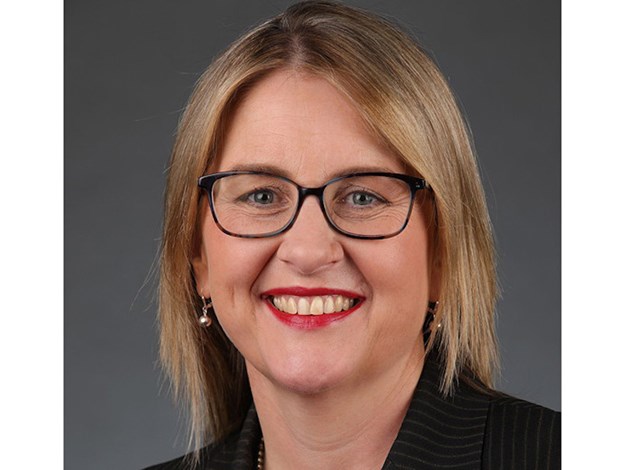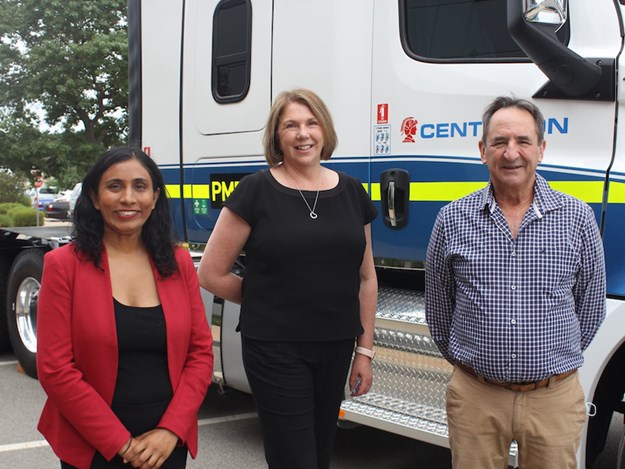They were quickly forgotten during COVID-19 lockdowns. But now truck drivers are returning to rest stops only to find them in horrific condition.
The United petrol station at Ilbilbie is like many in regional Australia. Truck drivers transporting goods along Queensland’s north-east coast can enjoy a break at the station along the Bruce Highway. But since the easing of COVID restrictions has allowed truckies to return to using rest stops, the Ilbilbie station has been mentioned plenty of times on United’s Facebook page – and not for the right reasons.
“The United servo at Ilbilbie was great years ago, but it now needs a D6 bulldozer to fix it,” one Facebook member says on the United page. “I started going up that way about six months ago and what I found the other day was what I would call the worst I’ve come across.”
The scene described by the user sounds like a truck driver’s worst nightmare. “Signs saying ‘sorry no water’ were reinforced by a clogged toilet”, the user says.
The hi-flow bowser refused to work. Three weeks ago the user tried that same bowser and “got splashed with diesel” when the auto-stop function didn’t kick in. When venturing to other toilets outside, the user didn’t encounter any cleaner amenities.
“When I walked to the male toilets in the donga outside, the smell that greeted me didn’t prepare me for what I found,” the user says. “It clearly wasn’t fresh, I had to use the ladies’ toilet instead.”
Truck drivers around Australia are taking to Facebook to vent about the messy conditions they are finding when they reach rest stops. For an industry that remained operational during COVID lockdowns and floods that hit New South Wales, Queensland and South Australia and kept the country going, being treated to third-world conditions is a massive issue. Industry bodies like the Victorian Transport Association (VTA) say more truck stops are needed to allow for more parking and access for heavy vehicle combinations travelling on Australian freight routes.
“There is no doubt we need more truck stops in Australia to service the growing freight task and the needs of interstate drivers,” VTA CEO Peter Anderson told ATN. “Fatigue management is paramount for long distance linehaul freight operators.”
But before any new truck stops are built, truck drivers are calling for governments to fund truck stop maintenance initiatives to return existing rest stops back to their pre-pandemic conditions. But according to Victorian transport infrastructure minister Jacinta Allan, politicians aren’t in charge of cleaning truck stops.
“The responsibility for cleaning truck stops or re-opening facilities after the pandemic rests with the individual operator,” Allan told ATN.
“Under the current pandemic orders, workplaces in Victoria are still required to have COVIDSafe plans, and these plans should address cleaning.”
 |
|
Victorian minister for infrastructure Jacinta Allan
|
Instead of introducing truck stop cleaning initiatives, the Victorian government says all operators should be following the Department of Health’s recently updated advice on cleaning requirements.
Allan doesn’t say how the government is enforcing these cleaning regulations, but only refers to the advice given by the Department of Health.
“These guidelines indicate cleaning standards for routine cleaning are: as per industry-specific legislation, standards and locally developed cleaning schedules,” the department says in a statement on its website.
Not all politicians are taking the same approach. The Victorian government’s response to the truck stop issue has fired up Western Australian senator Glenn Sterle, who has been working with independent roadhouses and service station companies since the COVID pandemic began to keep as many rest stops open as possible. He says governments are taking advantage of truck drivers in need of proper rest stops.
“The Victorian government’s response really riles me,” Sterle told ATN. “It’s abhorrent that any government can think it doesn’t have a role to play in assisting freight moving around this nation.”
“Every politician loves to get a photo with a truck driver when it suits them, so it annoys me when they then think they can keep them out of sight when it comes to the truck stop issue.”
Both the state and federal government’s lack of response has frustrated many truck drivers, who are continuing to take to Facebook to vent about the horrible conditions they find at rest stops. Sterle says he is one of the only Australian politicians acknowledging the problem and working towards a solution. Over the past two years he has been informing the transport industry about various service stations he has worked with to help clean their truck stops and raise their standards.
According to Sterle, poor truck stop conditions aren’t just a comfort problem – the poor maintenance of roadhouses is fast becoming a national road safety issue.
“Roadhouses are integral to national supply chains and play a major role in road safety,” Sterle says. “Our truck drivers need these facilities open and clean. Some photos I have been receiving from truck drivers have been quite sickening, it’s hard to believe facilities could get so bad in 2022.”
RELATED ARTICLE: How do we make Australian roads safer?
Sterle is adamant that truck drivers must get the opportunity to refresh themselves or else driver fatigue could become an even larger safety issue. In his current campaign working with service stations to ensure truck stops are cleaned, Sterle commends most fuel companies for being willing to work quickly to raise their standards.
But Sterle is doing more than just liaising with companies to clean dirty truck stops. Along with federal infrastructure shadow minister Catherine King and Labor candidate for the seat of Swan, Zaneta Mascarenhas, Sterle announced a Labor pre-election promise to invest $80 million in new and improved rest areas for truck drivers across Australia. He says it has the potential to revolutionise the transport industry.
“The announcement is huge,” Sterle says. “It’s the first time in my nearly 50 years in the industry that I’ve witnessed a potential government provide money for rest areas without hooks to it.”
 |
|
Sterle (right) at Labor’s truck stop announcement
|
“The $80 million will be given to truck drivers who will be consulted with. They can decide where the new truck stops go and which stops get revamped.”
Sterle hopes the $80 million package is able to be instated. If it is introduced, he says the initiative could help solve the worrying problem before it escalates further.
“It’s currently a major issue,” he says. “Truck drivers are the bloodline to the remote parts and their links to cities.”
“We’ve got a long way to go, we’re having our successes. I hope we can get the funding handed down to have these facilities clean and accessible in no time.”


